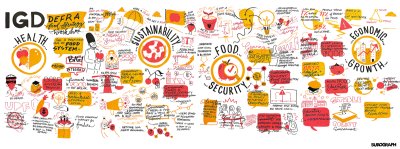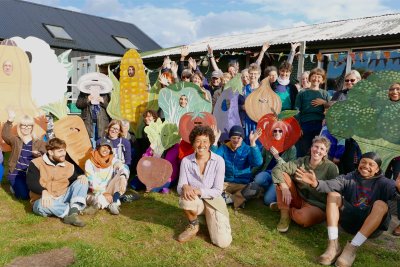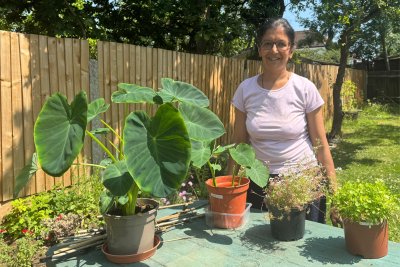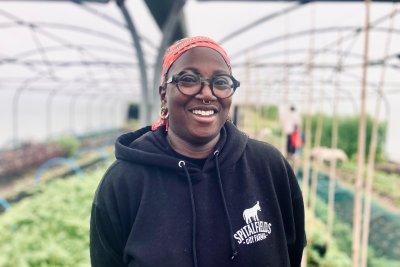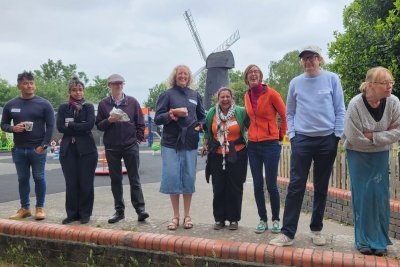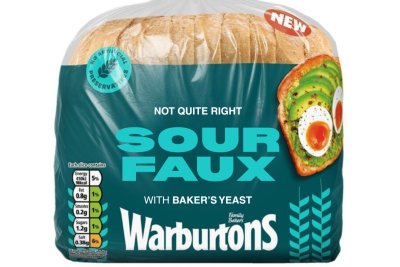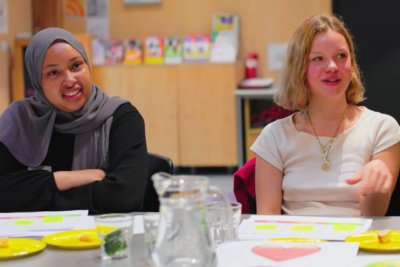.jpg) V Hird
V Hird
.jpg)
Going Digital - Technical infrastructure for an agroecological transition
Online food retail has exploded in response to COVID-19. This shift to online represents a huge opportunity to transform sales and logistics so that agroecological farming can regenerate our world. In this guest blog Lynne Davis from the Open Food Network explores technical infrastructure that can support a diverse and vibrant ecosystem of solutions to transform food and farming.
Online has long been a place for agroecological produce to find alternate routes to market. From box schemes to food hubs to community food projects, groups have aimed to reduce their overheads through an online sales presence. These groups have carved a cosy niche though overall food retail was amongst the last bastions of traditional retail unconsumed by the online revolution. Amazon, who can deliver almost anything you could think of, have struggled to make inroads into fresh and perishable produce. Supermarkets were trying, by paying staff to walk around supermarkets, pick produce and home-deliver, which essentially meant absorbing huge costs previously borne by the customer. Ocado was the first to make it work with automated packing technology, enabling the company to grow to 1% of food retail market share. But in general online sales remained marginal. They just weren’t the habit, with shoppers saying they wanted to see and smell the produce themselves.
From box schemes to food hubs to community food projects, groups have aimed to reduce their overheads through an online sales presence.
Then, of course, the pandemic changed everything. Suddenly the internet was a lifeline for many self isolating as well as those whose work and caring routines changed dramatically. Almost overnight online shopping for fresh food and perishables became the norm. Statistica reports that now over half of us purchase some food or grocery items online, an increase from only 14% in 2019. At the same time across the agroecological sector everyone experienced enormous demand. Not only have the number of producers selling online increased, but so have the number of places to buy and sell online. Never have there been more food sales platforms out there in the internet wilderness.
If competition continues to be the driving force in this wilderness we will all lose. Food producers will lose with the overhead required to create products and maintain stock levels across myriad different platforms. Tech platforms will lose by constantly trying to outcompete each other with the next new feature. Society will lose as huge investment will be spent reinventing different features and solutions in all the different platforms – investment that would be better spent elsewhere. And of course the big players want to retain their share, and have more capital, marketing budget and reputation power to wield. The story we’ve come to expect is that the biggest players will use this power to dominate, resulting in market concentration that is bad for the economy and society overall. If we are going to tackle our 21st century challenges we need a diverse and interconnected ecosystem of innovators and business models that will enable a mass transition in the way that we sell and distribute food as we transition to agroecological farming.
If competition continues to be the driving force in this wilderness we will all lose. Food producers will lose with the overhead required to create products and maintain stock levels across myriad different platforms.
To support this diverse ecosystem we need appropriate infrastructure that meets the specific needs of farming in line with natural systems. Agroecological farming encourages vibrant, living diversity on farms and as such requires infrastructure to support smaller harvests, more diverse crops and more regular cropping intervals. We need infrastructure to enable such produce to easily access reliable markets. We need to enable markets that are more diverse, less reliant on economies of scale and more responsive to natural fluctuations. As climate change makes our harvests even less reliable the imperative will only increase. We need to be able to sell produce flexibly, across multiple business models, platforms and outlets that genuinely serve the needs of communities. We need an ecosystem that ensures that supply and demand can continuously be balanced but without one dominant actor controlling the supply chain. Such a complex and diverse ecosystem of sales, fulfilment and logistics can only be enabled by collaboration – technical solutions that can talk to each other. The key is open interoperability standards.
We need infrastructure to enable such produce to easily access reliable markets. We need to enable markets that are more diverse, less reliant on economies of scale and more responsive to natural fluctuations.
Interoperability standards “enable the operational processes, underlying exchange and sharing of information between different systems”(ref). From rail infrastructure to internet protocols, interoperability standards have unlocked the potential of human collaboration. Interoperability standards can create resource efficiencies, such as in switching to standard micro USB phone charging across Europe to reduce waste. The UK government uses open standards to drive government IT systems, as they “unlock the transformative power of open source software.” Open standards make it possible to collaborate. They shift impetus from closed systems of proprietary control toward an ecosystem of open source commons. Investing in and implementing open standards for interoperable food systems can unlock potential that we can’t predict. So how do we go about this?
One approach is to implement interoperability between food sales platforms. Work on open data standards for the food system is being pioneered in France by the Data Food Consortium (DFC), who have developed an ontology for data exchange across five platforms. We in the UK can stand on the shoulders of their work to enable interoperable data standards between food sales platforms here. In the initial explorations the DFC are aiming to enable producers to upload products on one platform and then cross-sell across markets. Stock levels can be maintained across platforms enabling producers to confidently sell a smaller quantity of more diverse products. The intention is this will allow online food sales platforms to collaborate in supporting food producers by giving producers more options over routes to market that fit with their farm practices and enabling more diverse business models to emerge.
Stock levels can be maintained across platforms enabling producers to confidently sell a smaller quantity of more diverse products.
A second approach is to implement interoperability in distribution logistics. Much research and investment continues to go into this, but the key challenge for agroecology is a matter of scale. At a large scale the shipping container has revolutionised distribution logistics. Containers loaded at port onto the container ship to cross the ocean, then unloaded onto trucks at the other end. We haven’t yet taken this pattern beyond pallet scale to meaningful human levels – the scale of households and agroecolgoical holdings.
With interoperable physical infrastructure, opportunities open up within interoperable distribution itself. Delivery vehicles from all companies could distribute goods in line with needs. With a commons of infrastructure we can start to achieve the efficiencies of coordination in the deliveries themselves. Coordinated supply logistics can reduce unnecessary trips, reducing emissions. It can also help to create visibility over distribution patterns that will allow for better design. It allows for a small, diverse set of businesses to achieve the same economies that Amazon can with their monolithic logistics infrastructure.
It allows for a small, diverse set of businesses to achieve the same economies that Amazon can with their monolithic logistics infrastructure.
The agroecological movement is well placed to pioneer such collaborations. Effective collaborations are key not only in the sale and distribution of goods, but in the movement and reuse of packaging. And they will be key in the face of upcoming technologies such as driverless cars to ensure they are accessible to everyone, not just elites that use intellectual property to concentrate wealth and power. The technology already exists to create effective solutions. What is needed is clear investment, leadership and commitment to driving commons-based approaches. We need smaller actors to pioneer effective solutions that put collaboration before the needs of individual organisations. And we need sufficient investment to implement these solutions. This shift toward collaborative, commons based approaches is key if agroecology is going to become mainstream.
The Open Food Network UK will be convening conversations in the coming months to explore collaborations in open data standards for UK food systems. If you would like to be kept informed about such conversations please leave your email address here.
Sustain's Sustainable Farming Team want to support this initiative as part of its work to explore ways to redesign food supply chains and infrastructure, including digital tools and platforms, so they better support farmers.
Sustainable Farming Campaign: Pushing for the integration of sustainable farming into local, regional and national government policies.
Sustain
The Green House
244-254 Cambridge Heath Road
London E2 9DA
020 3559 6777
sustain@sustainweb.org
Sustain advocates food and agriculture policies and practices that enhance the health and welfare of people and animals, improve the working and living environment, promote equity and enrich society and culture.
© Sustain 2025
Registered charity (no. 1018643)
Data privacy & cookies
Icons by Icons8
